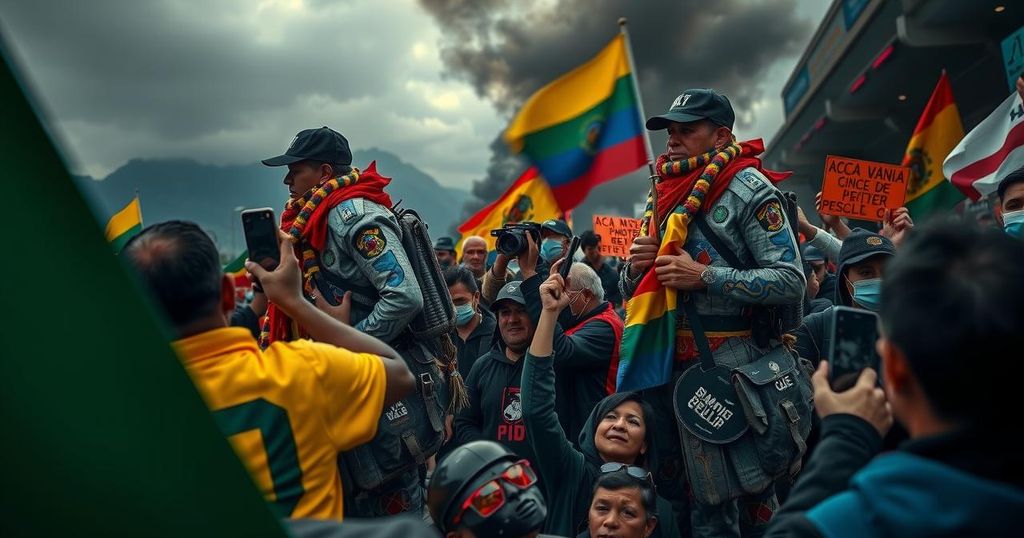Political Turmoil in Bolivia Signals Potential Shift in Power Dynamics
Bolivia is facing a political crisis led by a struggle between President Luis Arce and former President Evo Morales, whose influence is diminishing. Widespread protests have highlighted internal divisions within MAS, opening opportunities for the opposition in upcoming elections. However, the new government will confront dire economic conditions, presenting complex challenges. This situation has the potential to affect Bolivia’s democratic processes and reforms significantly.
The ongoing power struggle between President Luis Arce and former President Evo Morales is creating notable upheaval within Bolivia’s Movimiento al Socialismo (MAS) party. Recent widespread protests, including road blockades and military post occupations, have exacerbated tensions amid accusations of attempted assassinations. Morales, once a popular leader, is now contending with diminished influence and challenges within his party ahead of the critical August 2025 elections. His former ally, Arce, faces low approval ratings, presenting an opportunity for the opposition to capitalize on MAS’s fragmentation. The political landscape has shifted since Morales’s resignation amid protests in 2019. His return marked an attempt to influence the Arce administration, leading to a bitter rivalry. Morales’ recent attempts at mobilization, such as hunger strikes and blockades, have lost effectiveness, revealing fractures within MAS and distancing him from his traditional supporting sectors. With limited success in achieving his political demands, Morales’ position has weakened significantly. These developments open the door for opposition parties to regain ground after two decades of being sidelined. However, any prospective government will face substantial challenges, including economic strains and social unrest. Bolivia’s economic conditions remain precarious, and proposed reforms face potential backlash from a population weary of political instability. Despite these obstacles, there exists a silver lining where the current crisis may lead to strengthened democratic practices, judicial reforms, and urgent environmental initiatives if the opposition capitalizes on this momentous period in Bolivian politics.
Bolivia has been confronted with significant political turmoil arising from the rivalry between President Luis Arce and former President Evo Morales. Since Morales resigned in 2019 following allegations of electoral fraud, the political environment has shifted dramatically. Under Morales, Bolivia experienced a notable rise in prominence and support, but recent years have seen his influence wane, thereby altering the dynamics within the ruling MAS party. The context in which this power struggle occurs is essential to understanding the implications for future elections and the country’s governance, particularly in light of the socio-economic challenges that remain.
In conclusion, the power dynamics within Movimiento al Socialismo are indicative of broader political instability in Bolivia. Morales’ declining influence amidst internal party divisions and rising opposition is crucial as the country prepares for the 2025 elections. Significant economic challenges persist, and if the opposition can effectively harness this turmoil, there may exist a pathway toward renewing Bolivia’s democratic integrity and addressing vital social and environmental issues. The forthcoming period will undoubtedly test the resilience of Bolivian governance.
Original Source: www.americasquarterly.org




Post Comment